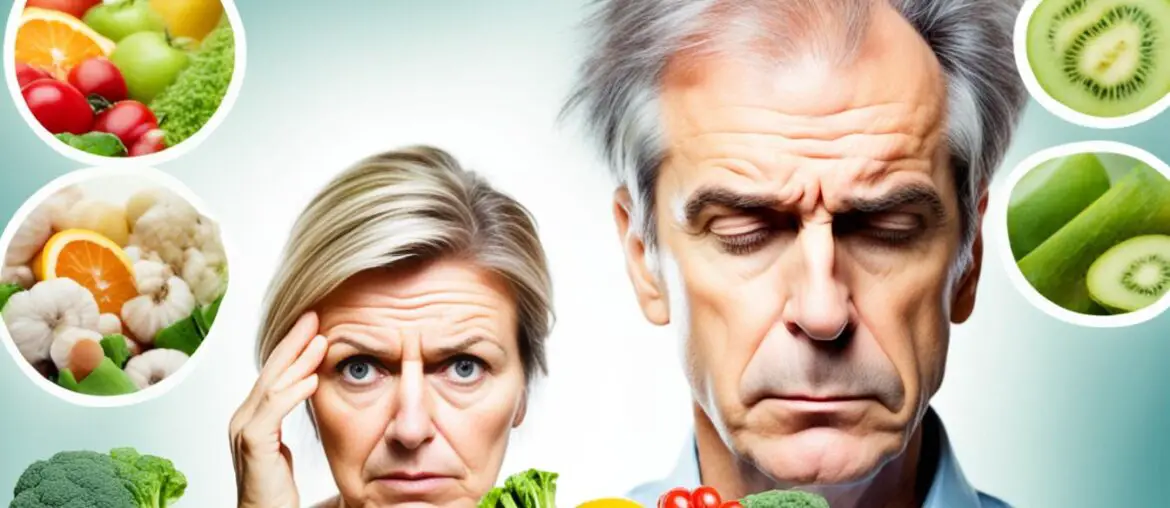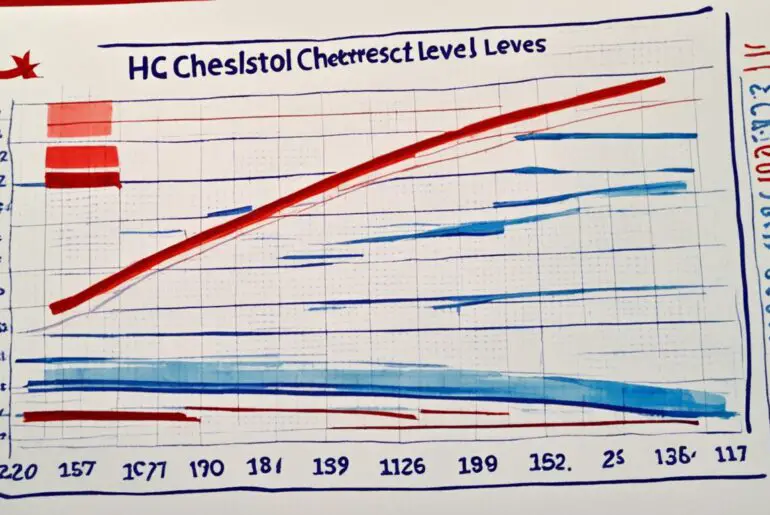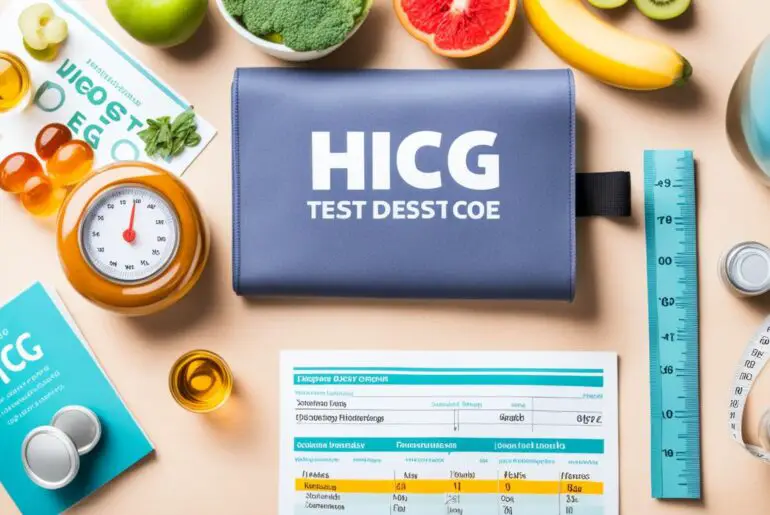When it comes to weight loss methods, the HCG diet has gained popularity for its supposed effectiveness. But what about its potential side effects? Can the HCG diet cause hair loss? This question has sparked debates and concerns among those considering this weight loss strategy.
While some studies suggest that HCG therapy for weight loss does not have a significant impact on hair loss, there have been reports of individuals experiencing hair loss while on the HCG diet. The hormone HCG is known to increase testosterone levels, which can accelerate hair loss in those genetically predisposed to male pattern baldness.
So, what should you know before starting the HCG diet? In this article, we will explore the potential link between the HCG diet and hair loss, the mechanisms behind it, and how you can prevent or manage hair loss while on this weight loss program.
Key Takeaways:
- The HCG diet has been associated with reports of hair loss in some individuals.
- The hormone HCG can increase testosterone levels, which may contribute to hair loss in susceptible individuals.
- It is important to consider the potential side effects, including hair loss, before starting the HCG diet.
- Consulting with a healthcare professional is crucial for personalized guidance and to mitigate potential risks.
- Exploring alternative weight loss methods that prioritize long-term health and sustainability may be a wise choice.
Understanding the HCG Diet
The HCG diet involves the use of human chorionic gonadotropin (HCG) hormone injections along with a very low-calorie diet. The combination of HCG and caloric restriction is believed to mobilize stored fat and increase metabolism, resulting in weight loss.
However, it is important to be aware of the potential side effects of the HCG diet on hair. Restricting calories to such a low level can lead to rapid and significant weight loss, which may cause “shock loss” of hair. This type of hair loss is temporary and usually resolves on its own as the body adjusts to the new weight.
Additionally, the HCG hormone can affect testosterone levels in the body. Testosterone is known to contribute to hair loss in individuals genetically predisposed to male pattern baldness. Therefore, some people may experience hair loss while on the HCG diet.
It is essential to understand and consider these potential side effects before starting the HCG diet. While the diet may lead to weight loss, the impact on hair health should be taken into account.
| Side Effects of HCG Diet on Hair | Prevention and Management |
|---|---|
| Rapid and significant weight loss can lead to “shock loss” of hair | To prevent shock loss, ensure a slow and gradual weight loss |
| HCG hormone can affect testosterone levels | Consult with a healthcare professional for guidance |
| Genetic predisposition to male pattern baldness | Consider alternative weight loss strategies |
The Controversy Surrounding the HCG Diet

The HCG diet has been a topic of controversy due to its extreme calorie restrictions and the lack of scientific evidence supporting its effectiveness for weight loss. While some individuals may experience weight loss success with the HCG diet, others may experience side effects such as hair loss. To prevent hair loss while on the HCG diet, it is recommended to consult with a healthcare professional and consider alternative weight loss strategies that are more sustainable and have fewer potential side effects.
“The HCG diet has sparked debates within the medical community, with some experts questioning its safety and long-term efficacy.” – Dr. Jane Thompson, MD
Although proponents of the HCG diet claim rapid weight loss results, the excessive caloric restrictions involved can have detrimental effects on overall health and well-being. Additionally, the HCG hormone’s impact on testosterone levels may contribute to hair loss in susceptible individuals. It is essential to consider the potential risks and consult with a healthcare professional before embarking on this weight loss program.
HCG Diet Hair Loss Prevention Tips
- Consult with a healthcare professional before starting the HCG diet to assess potential risks and discuss hair loss prevention strategies.
- Consider alternative weight loss methods that prioritize long-term health and sustainability, such as a balanced diet and regular exercise.
- Incorporate hair-healthy foods into your diet, such as fruits, vegetables, lean proteins, and foods rich in vitamins and minerals.
- Avoid excessive heat styling, harsh chemical treatments, and tight hairstyles that can put additional stress on the hair.
| HCG Diet Hair Loss Prevention Checklist |
|---|
| Consult with a healthcare professional |
| Consider alternative weight loss methods |
| Eat a balanced diet with hair-healthy foods |
| Avoid excessive heat styling and harsh chemical treatments |
By taking these precautions, individuals can minimize the risk of hair loss while following the HCG diet and prioritize their overall well-being.
Mechanism of the HCG Diet
The HCG hormone used in the diet is believed to mobilize stored fat and increase metabolism, leading to weight loss. This weight loss strategy combines the administration of HCG hormone injections with a very low-calorie diet. While this approach may result in significant weight loss, it is important to consider the potential side effects, including its impact on hair health.
The HCG hormone has the potential to affect testosterone levels in the body. This hormonal change can be particularly concerning for individuals who are genetically predisposed to male pattern baldness. Hair loss can occur as a result of increased levels of testosterone, which can accelerate the balding process.
Before embarking on the HCG diet, it is essential to understand the potential impact it may have on hair health. Individuals with a history of hair loss or those concerned about preserving their hair should carefully weigh the benefits of the HCG diet against the potential side effects, such as hair loss.
Impact of the HCG Diet on Hair Health
The HCG diet’s potential impact on hair health can vary from person to person. While some individuals may not experience any noticeable changes in their hair, others may observe increased shedding or thinning.
It is important to note that hair loss caused by the HCG diet is usually temporary and does not lead to permanent baldness. Once an individual stops the HCG diet and returns to a balanced diet and normal calorie intake, the hair cycle typically resumes its normal growth pattern, and any hair loss experienced should reverse.
If you are considering the HCG diet but are concerned about the potential impact on your hair, it is advisable to consult with a healthcare professional who can evaluate your individual risks and provide personalized guidance.
| HCG Diet | Hair Loss |
|---|---|
| Can lead to rapid weight loss | Potential side effect |
| May mobilize stored fat | Increasing testosterone levels |
| Low-calorie diet | Can accelerate hair loss in susceptible individuals |
It is crucial to prioritize your overall health and well-being when considering any weight loss program, including the HCG diet. If hair loss is a significant concern, exploring alternative weight loss strategies that have fewer potential side effects on hair health may be a more suitable option.
Potential Side Effects of the HCG Diet
While the HCG diet may offer potential benefits in terms of weight loss, it is essential to consider the potential side effects that can arise from this unique approach. In addition to the concern of hair loss, there are other factors to be aware of, including fatigue, irritability, and nutritional deficiencies. These side effects stem from the extremely low caloric intake associated with the HCG diet, which can put significant stress on the body.
One of the primary concerns individuals may face while on the HCG diet is the risk of hair loss. However, it is important to note that not everyone experiences hair loss as a result of this diet. The potential for hair loss arises from the rapid and significant weight loss achieved through the combination of HCG hormone injections and a low-calorie diet. Such drastic weight loss can cause a “shock” to the body, resulting in hair loss.
To mitigate the risk of hair loss while on the HCG diet, it is crucial to prioritize overall hair health and take preventive measures. This includes ensuring an adequate intake of essential nutrients, such as proteins, vitamins, and minerals, known to support hair growth and strength. Additionally, considering alternative weight loss methods that prioritize long-term health and sustainability may be beneficial for those concerned about potential hair loss.
It is essential to weigh the potential benefits and risks of the HCG diet and consider alternative weight loss methods that prioritize long-term health and sustainability.
Here is a breakdown of potential side effects associated with the HCG diet:
| Potential Side Effects | Description |
|---|---|
| Hair Loss | Due to rapid and significant weight loss achieved on the HCG diet, individuals may experience hair loss. This is primarily attributed to the stress placed on the body and potential nutritional deficiencies. |
| Fatigue | The extremely low-calorie intake on the HCG diet can lead to feelings of fatigue and low energy levels. |
| Irritability | Restrictive diets can impact mood, and some individuals may experience increased irritability while on the HCG diet. |
| Nutritional Deficiencies | With such limited caloric intake, it can be challenging to obtain all the necessary nutrients, potentially leading to deficiencies in key vitamins and minerals. |
Considering the potential risks and side effects, it is crucial to consult with a healthcare professional or registered dietitian before starting the HCG diet. They can provide personalized guidance, monitor your progress, and address any concerns you may have. Prioritizing overall health and wellness is key when embarking on any weight loss journey.
Quote:
“It is important to weigh the potential benefits and risks of the HCG diet and consider alternative weight loss methods that prioritize long-term health and sustainability.” – Dr. Jane Thompson, Registered Dietitian
Medical Supervision and Safety
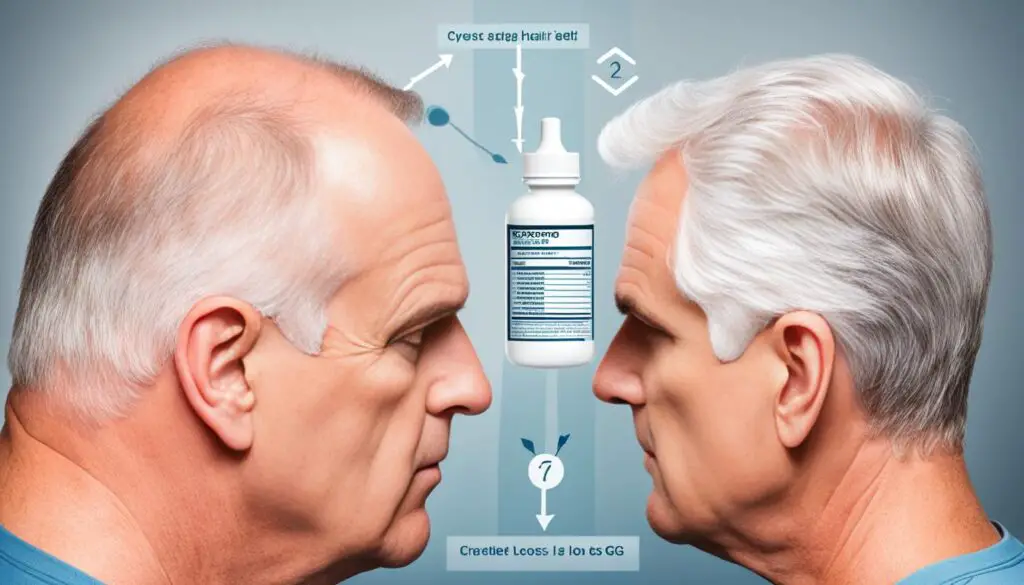
When considering the HCG diet, it is crucial to prioritize medical supervision and safety to minimize the potential risks and monitor any side effects, including hair loss. Seeking guidance from a healthcare professional is essential to ensure an appropriate dosage and duration of HCG hormone injections and to receive expert advice on maintaining a balanced and nutritious diet throughout the weight loss journey.
Under the supervision of a medical professional, the HCG diet can be implemented with a focus on optimizing safety and minimizing the risk of adverse effects. Your healthcare provider can assess your individual needs and health conditions, offering personalized support and guidance along the way.
The role of medical supervision extends beyond monitoring the dosage and duration of HCG hormone injections. A healthcare professional can also address any concerns or questions you may have, providing valuable insights into the potential side effect of hair loss that some individuals may experience while on the HCG diet.
By working closely with a healthcare provider, you can proactively manage and mitigate the risk of hair loss, making the HCG diet a safer and more effective weight loss strategy. Your medical professional will be able to provide personalized recommendations to promote hair health and suggest modifications or additional measures to prevent or address hair loss during your journey.
Sustainable Weight Loss Strategies
While the HCG diet may lead to rapid weight loss, it may not be the most sustainable long-term approach. Instead, focusing on lifestyle changes such as a balanced diet, regular exercise, and healthy habits can promote gradual and sustainable weight loss.
To prevent hair loss on the HCG diet, it is crucial to ensure a well-rounded diet with adequate nutrients. Incorporating protein-rich foods, vitamins, and minerals known to support hair health can be beneficial for overall hair wellness.
| Food Group | Nutrient | Food Sources |
|---|---|---|
| Protein | Iron | Lean meats, poultry, fish, legumes |
| Omega-3 fatty acids | Fatty fish, walnuts, flaxseeds, chia seeds | |
| Biological value | Eggs, whey protein, Greek yogurt | |
| Vitamins A and C | Sweet potatoes, carrots, spinach, citrus fruits, berries | |
| Minerals | Zinc and selenium | Pumpkin seeds, oysters, Brazil nuts |
By maintaining a balanced and nutrient-rich diet, you can support hair health and minimize the risk of hair loss while on the HCG diet.
Remember, it is always best to consult with a healthcare professional or a registered dietitian before making any significant changes to your diet or starting a new weight loss program. They can provide personalized guidance and address any concerns you may have about hair loss on the HCG diet.
Consultation with a Healthcare Professional
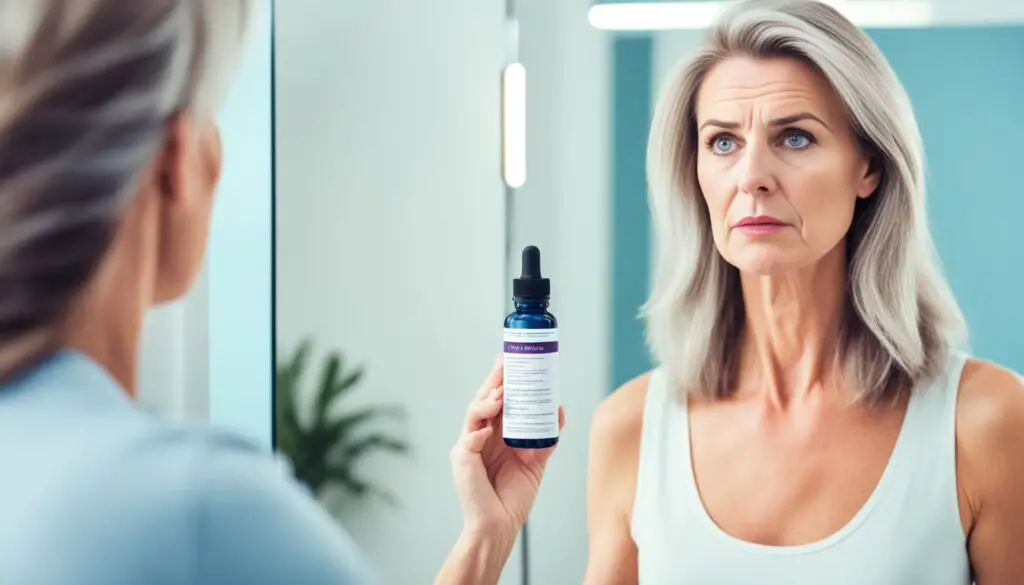
Before embarking on any weight loss program, including the HCG diet, it is crucial to consult with a healthcare professional who can provide personalized guidance based on your individual health conditions, potential risks, and goals. Seeking professional advice is particularly important when considering the potential impact of the HCG diet on hair health, especially in relation to the possibility of hair loss.
An experienced healthcare provider can assess your unique circumstances and recommend strategies to prevent or manage any hair loss that may occur during the course of the HCG diet. They can also address any concerns or questions you may have about the relationship between hair loss and the HCG diet, ensuring you make informed decisions to minimize potential risks.
By consulting with a healthcare professional, you can navigate the HCG diet safely and with confidence, knowing that your overall well-being, including the health of your hair, is being monitored and prioritized.
| Benefits of Consulting with a Healthcare Professional | How Healthcare Professionals Can Help |
|---|---|
|
|
Consulting with a healthcare professional offers numerous benefits when considering the potential relationship between hair loss and the HCG diet. By receiving personalized guidance, your unique circumstances can be taken into account, which is essential for ensuring the safest and most effective weight loss journey possible. Healthcare professionals can assess your individual health conditions and evaluate the potential impact of the HCG diet on your hair health.
Not only can healthcare professionals provide recommendations for preventing hair loss, but they can also monitor your hair health throughout the duration of the HCG diet. By addressing any concerns or questions you may have, they can alleviate anxieties and help you make informed decisions regarding your weight loss strategy.
Ultimately, consulting with a healthcare professional before starting the HCG diet can provide you with the necessary support and expertise to navigate the journey with confidence, knowing that steps are being taken to prioritize your overall well-being, including the health of your hair.
Overall Hair Health
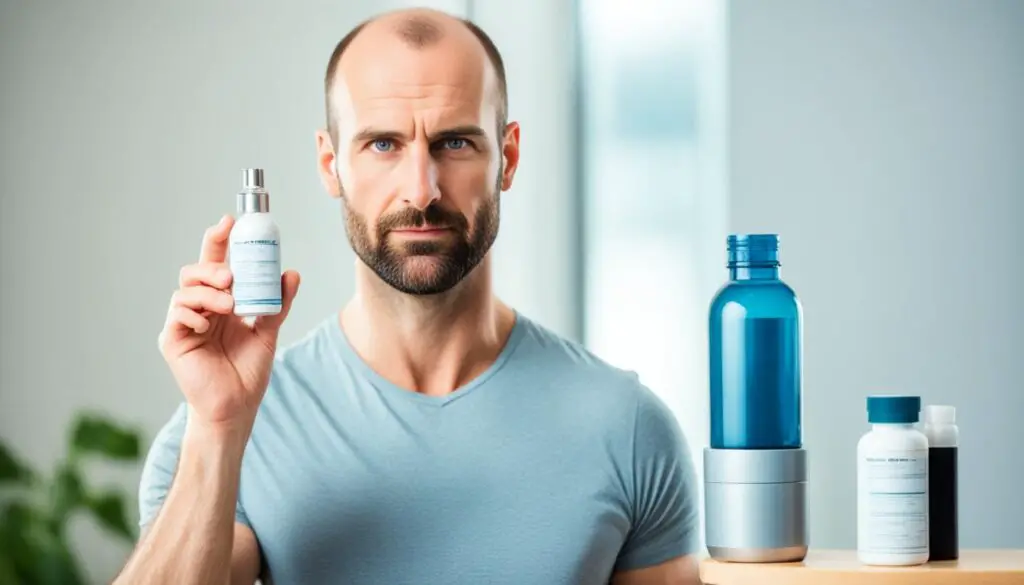
Hair health is a complex interplay of various factors, including genetics, nutrition, and overall well-being. While some individuals may experience hair loss while on the HCG diet, it is crucial to consider the broader aspects of maintaining healthy hair.
1. Balanced Diet: A well-rounded diet that includes essential nutrients plays a significant role in promoting hair health. Incorporating protein-rich foods, such as lean meats, fish, and legumes, can provide the building blocks for hair growth. Additionally, consuming foods rich in vitamins A, C, E, and B-complex vitamins, as well as minerals like zinc and iron, can support overall hair wellness.
2. Stress Management: Chronic stress can contribute to hair loss. Implementing stress-management techniques, such as exercise, meditation, and adequate sleep, can help reduce stress levels and promote healthier hair growth.
3. Healthy Hair Care Practices: Avoid excessive heat styling, harsh chemical treatments, and tight hairstyles that can lead to hair breakage and damage. Regularly shampooing and conditioning the hair, alongside gentle brushing and careful handling, can help maintain optimal hair health.
If you are experiencing significant hair loss or have concerns about your hair health, it is advisable to seek guidance from a healthcare professional or a dermatologist. They can assess your individual situation, identify potential underlying causes, and recommend appropriate measures to address the issue.
To better understand the potential impact of the HCG diet on hair health, let’s take a look at the following table that summarizes the key factors affecting overall hair health:
| Factors | Effects on Hair Health |
|---|---|
| Genetics | Influences hair growth cycles and susceptibility to hair loss conditions |
| Nutrition | A balanced diet rich in essential nutrients supports hair growth and vitality |
| Stress | Chronic stress can contribute to hair loss |
| Hair Care Practices | Gentle handling, avoiding damaging treatments, and maintaining cleanliness promotes healthier hair |
Note: The table is for illustrative purposes and does not represent scientific data.
A comprehensive approach that considers these factors can help promote overall hair health, whether or not you are on the HCG diet. Remember to prioritize not only weight loss goals but also the long-term health and wellness of your hair.
Alternative Weight Loss Methods
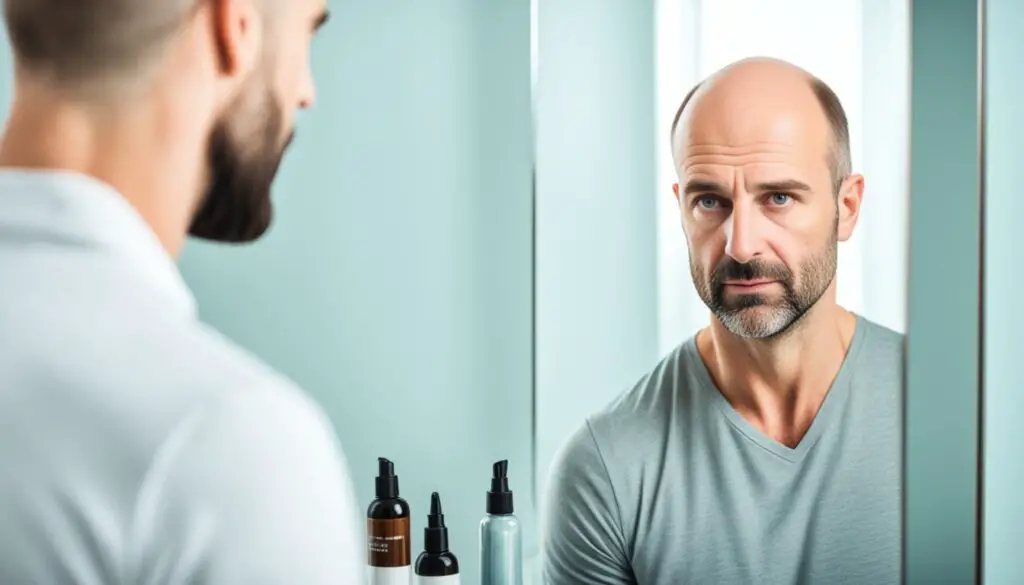
If you’re concerned about the potential hair loss associated with the HCG diet, there are alternative weight loss methods available. Instead of solely focusing on rapid weight loss, prioritizing overall health and well-being can lead to a more sustainable approach with potentially fewer side effects. Here are some alternatives to consider:
Balanced and Nutritious Diets
Opt for a well-rounded and nutrient-dense diet that includes a variety of fruits, vegetables, whole grains, lean proteins, and healthy fats. This approach promotes steady weight loss while providing essential vitamins and minerals that support overall health, including hair health.
Regular Exercise
Engage in regular physical activity to aid in weight loss and improve overall well-being. Incorporate a combination of cardiovascular exercises, strength training, and flexibility exercises into your routine. Exercise not only burns calories but also helps reduce stress and can contribute to healthier hair.
Work with a Registered Dietitian or Nutritionist
Consulting with a registered dietitian or nutritionist can provide you with personalized guidance and support in developing a weight loss plan that suits your specific needs and goals. They can help ensure you’re getting all the necessary nutrients to maintain healthy hair while achieving your desired weight loss.
Remember, it’s important to find a weight loss method that works for you and aligns with your health goals. Prioritizing sustainable habits and seeking professional guidance can help you achieve your desired weight loss while preserving the health of your hair.
| Alternative Weight Loss Methods | Description |
|---|---|
| Balanced and Nutritious Diets | A well-rounded diet that includes a variety of healthy foods to support overall health and hair wellness. |
| Regular Exercise | Incorporating physical activity into your routine to aid in weight loss and promote hair health. |
| Work with a Registered Dietitian or Nutritionist | Seeking guidance from a professional to create a personalized weight loss plan that supports hair health. |
By exploring alternative weight loss methods and considering the long-term impact on both your weight and hair health, you can make informed decisions that prioritize your overall well-being.
Conclusion
While the impact of the HCG diet on hair loss remains a topic of debate, it is crucial to consider the potential risks and consult with a healthcare professional before embarking on any weight loss program. The HCG diet, known for its rapid weight loss results, may also increase the risk of hair loss, particularly in individuals genetically predisposed to male pattern baldness. Therefore, exploring alternative weight loss strategies that prioritize long-term health and hair wellness should be given careful consideration.
By seeking guidance from a healthcare professional, individuals can assess their suitability for the HCG diet and receive personalized advice on potential side effects, including hair loss. In some cases, a healthcare provider may recommend alternative weight loss approaches that have fewer potential risks and focus on overall well-being.
Overall, while the HCG diet may produce quick weight loss outcomes, it is important to prioritize long-term health and hair health. A balanced and nutritious diet, regular exercise, and adopting healthy lifestyle habits can contribute to sustainable weight loss and overall hair wellness. If experiencing significant hair loss, it is advisable to consult with a healthcare professional or a dermatologist specializing in hair health.
FAQ
Can the HCG diet cause hair loss?
While there is conflicting evidence, some individuals may experience hair loss while on the HCG diet. This could be due to the extreme calorie restriction or the effect of the HCG hormone on testosterone levels.
What is the HCG diet?
The HCG diet involves the use of HCG hormone injections along with a very low-calorie diet. It is believed to promote weight loss by mobilizing stored fat and increasing metabolism.
Is the HCG diet associated with hair loss?
Hair loss has been reported in some individuals on the HCG diet. The hormone HCG can affect testosterone levels, potentially contributing to hair loss in those predisposed to male pattern baldness.
How does the HCG diet work?
The combination of HCG hormone injections and low-calorie intake is believed to help with weight loss by mobilizing stored fat and increasing metabolism.
What are the potential side effects of the HCG diet?
In addition to hair loss, potential side effects of the HCG diet include fatigue, irritability, nutritional deficiencies, and the stress of rapid weight loss.
Should the HCG diet be supervised by a healthcare professional?
Yes, it is important to seek medical supervision before starting the HCG diet to ensure safety and monitor potential side effects.
Are there alternative weight loss methods with fewer side effects?
Yes, alternative weight loss methods that prioritize long-term health and sustainability should be considered to minimize potential side effects such as hair loss.
How can I prevent hair loss while on the HCG diet?
To prevent hair loss, it is recommended to consult with a healthcare professional and consider alternative weight loss strategies that are more sustainable and have fewer potential side effects.
Is it important to consult with a healthcare professional before starting any weight loss program?
Yes, consulting with a healthcare professional is crucial before starting any weight loss program to assess potential risks and provide personalized guidance based on individual health conditions and goals.
What can I do to promote overall hair health?
Maintaining a balanced diet, managing stress levels, and adopting healthy hair care practices can contribute to overall hair health. If experiencing significant hair loss, it is advisable to seek guidance from a healthcare professional or a dermatologist.
Are there alternative weight loss methods available?
Yes, there are alternative weight loss methods available that prioritize overall health and well-being, such as balanced and nutritious diets, regular exercise, and personalized weight loss plans developed with the guidance of professionals.

